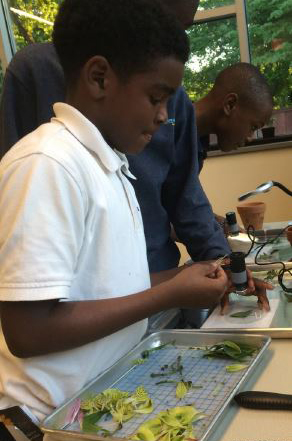 Everyone is a scientist.
Everyone is a scientist.
This simple but powerful concept is at the core of a new program taking root at Missouri Botanical Garden—PlantLab Student Scientists: Growing the Future. As a world-renowned center for plant science and conservation, the Garden is in a unique position to forge relationships between students and the increasingly crucial fields of plant science, horticulture, ecological restoration, and sustainability.
Through immersive lab experiences, interactions with plant science professionals, and compelling curriculum inspired by real-world challenges, both students and teachers with grow stronger as scientists. Participants will be able to collect and use data and evidence to inform decisions, solve problems, and maybe even save the world. Let’s do this, St. Louis!